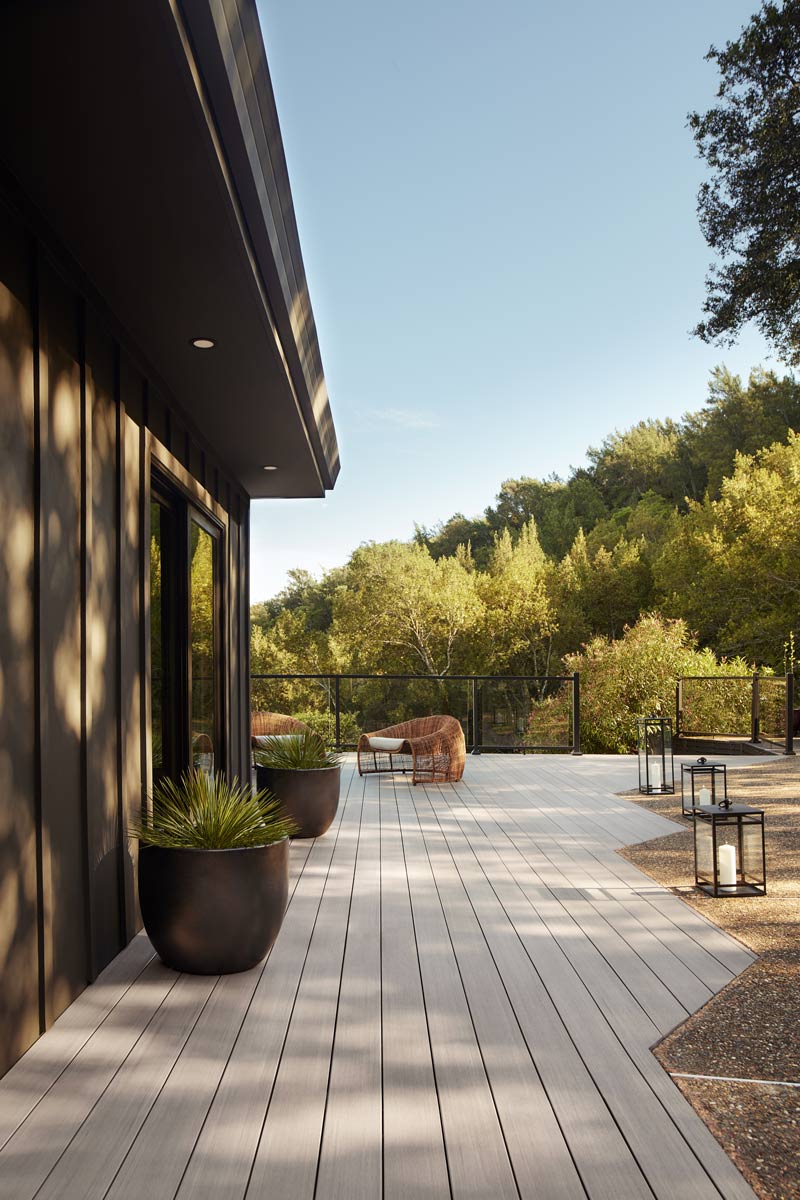When planning your outdoor deck, choosing the right material is one of the most critical decisions you’ll make. Two popular options are composite decking and PVC decking. Each has unique characteristics, benefits, and drawbacks that make them suitable for different preferences and needs. Below, we break down the differences, pros, and cons to help you make an informed decision.
What is Composite Decking?
Composite decking is made from a combination of wood fibers and recycled plastic. These materials are bonded together to form durable boards that mimic the appearance of natural wood while offering enhanced longevity and reduced maintenance. Composite decking is available in a wide variety of colors, textures, and finishes to suit any aesthetic.
Pros of Composite Decking:
- Durability: Resistant to rot, insects, and warping, composite decking can last for decades with proper care.
- Low Maintenance: Requires minimal upkeep compared to wood. Occasional cleaning with soap and water keeps it looking fresh.
- Aesthetic Appeal: Provides a natural wood-like appearance with a variety of textures and colors.
- Eco-Friendly: Made from recycled materials, reducing waste and environmental impact.
Cons of Composite Decking:
- Cost: Typically more expensive upfront compared to traditional wood.
- Heat Retention: Can become hot in direct sunlight, making it uncomfortable to walk on barefoot.
- Fading and Staining: Some lower-quality composites may fade or stain over time, especially if exposed to harsh weather conditions.
What is PVC Decking?
PVC decking is made entirely from polyvinyl chloride (a type of plastic). Unlike composite decking, it contains no organic material, which makes it highly resistant to moisture and rot. PVC decking often features capped technology, where a protective outer layer enhances its durability and resistance to stains and scratches.
Pros of PVC Decking:
- Water Resistance: 100% waterproof, making it ideal for areas with heavy rain or high humidity.
- Lightweight: Easier to handle and install compared to composite or wood.
- Durability: Highly resistant to mold, mildew, and insect damage.
- Low Maintenance: Requires only periodic cleaning to maintain its appearance.
- Color Retention: Advanced manufacturing processes ensure the color stays vibrant for years.
Cons of PVC Decking:
- Cost: Similar to or even higher than composite decking.
- Artificial Appearance: Some products may look less like natural wood compared to composite options.
- Flexibility: Can feel less solid underfoot due to its lighter weight.
Composite vs PVC Decking: Which is Better?
The better choice depends on your priorities:
- For Durability and Water Resistance: PVC decking is superior, especially in moist climates or near pools.
- For Aesthetic and Eco-Friendliness: Composite decking offers a more natural look and is made from recycled materials.
- For Budget: While both options are pricier than wood, composite decking generally has a broader price range, making it more accessible.


images from TimberTech
Final Note
Both composite and PVC decking are excellent alternatives to traditional wood, offering enhanced durability and lower maintenance. If you prioritize a natural appearance and sustainability, composite decking may be the better fit. If water resistance and durability in extreme conditions are your main concerns, opt for PVC decking. By weighing these factors against your budget and aesthetic preferences, you can choose the material that best suits your needs and creates the outdoor space you’ve envisioned.

